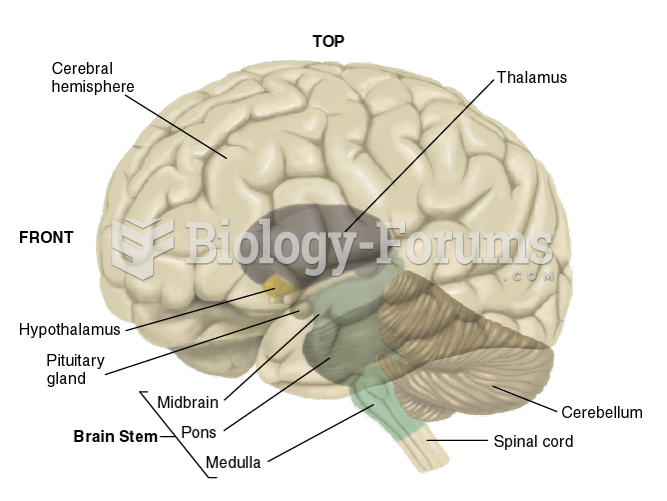Answer to Question 1
b
Answer to Question 2
Activating effects are more temporary, continuing only while a hormone is present or shortly beyond. For example, current hormone levels influence the degree of sex drive. The burst of hormones during pregnancy produce complex, temporary effects on emotional arousal, aggressive behavior, learning, and cognition.
Testosterone, essential for male sexual arousal, acts partly by increasing touch sensitivity in the penis. Testosterone primes the MPOA and several other brain areas to release dopamine. MPOA neurons release dopamine strongly during sexual activity, and the more dopamine they release, the more likely the male is to copulate. Levels of testosterone correlate positively with men's sexual arousal and their drive to seek sexual partners. Decreases in testosterone levels generally decrease male sexual activity. For example, castration (removal of the testes) generally decreases a man's sexual interest and activity. However, low testosterone is not the usual basis for impotence, the inability to have an erection. The most common cause is impaired blood circulation, especially in older men.
A woman's hypothalamus and pituitary interact with the ovaries to produce the menstrual cycle, a periodic variation in hormones and fertility over the course of about 28 days. After the end of a menstrual period, the anterior pituitary releases follicle-stimulating hormone (FSH), which promotes the growth of a follicle in the ovary. The follicle nurtures the ovum (egg cell) and produces several types of estrogen, including estradiol. Toward the middle of the menstrual cycle, the follicle builds up more and more receptors to FSH, so even though the actual concentration of FSH in the blood is decreasing, its effects on the follicle increase. As a result, the follicle produces increasing amounts of estradiol. The increased release of estradiol causes an increased release of FSH as well as a sudden surge in the release of luteinizing hormone (LH) from the anterior pituitary. FSH and LH combine to cause the follicle to release an ovum. The remnant of the follicle (now called the corpus luteum) releases the hormone progesterone, which prepares the uterus for the implantation of a fertilized ovum. Progesterone also inhibits the further release of LH. If the woman is pregnant, estradiol and progesterone levels continue to increase. If she is not pregnant, both hormones decline, the lining of the uterus is cast off (menstruation), and the cycle begins again.
For humans, the results concerning female sexual arousal are a bit more complex. When researchers compared young married women, they found that frequency of sexual intercourse correlated highly with the amount of testosterone that women produced at the periovulatory period, the days around the middle of the menstrual cycle, when fertility is highest. However, a study comparing women's increases and decreases of sexual interest from day to day across one or two months found that sexual desire correlated strongly with changes in levels of estradiol, not testosterone. Many women report a drop in sexual desire after surgical removal of their ovaries, resulting in lower estradiol levels.







